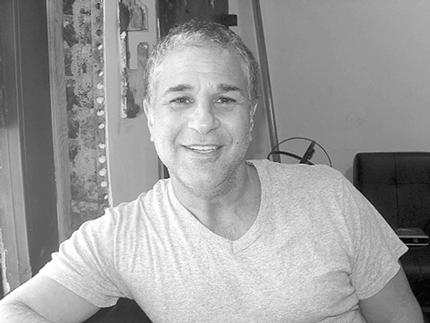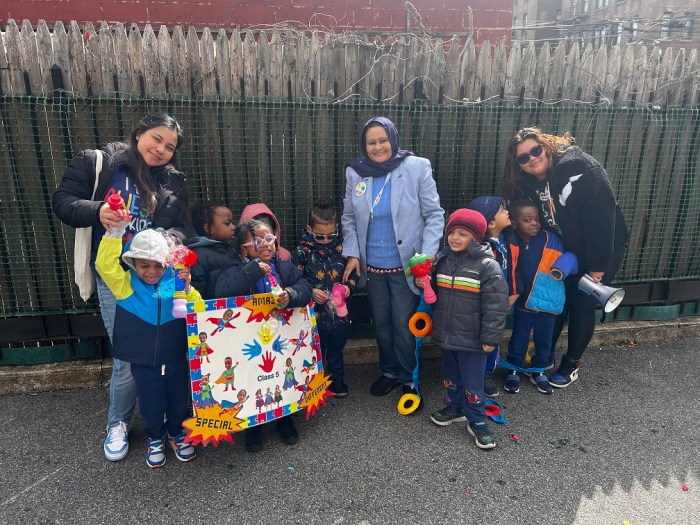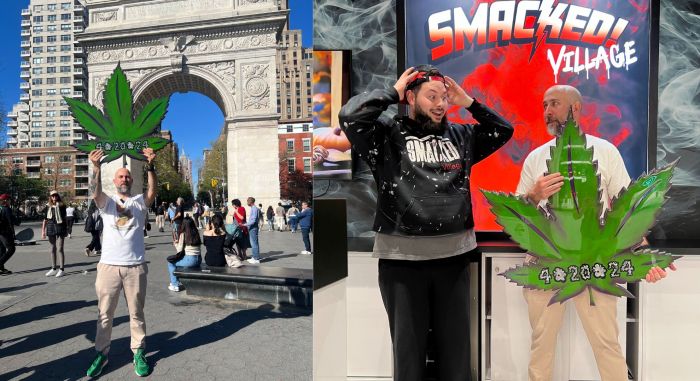Prevention groups seek to talk to gay men where they play
AIDS groups, including some that are not traditionally associated with the gay community, are seeking to strengthen their presence in the sex clubs and private sex parties that are popular among New York City’s gay and bisexual men.
“In spite of what people may think about these private parties, the promoters are making a conscious effort to try to be better and regulate themselves,” said Michael P. Saunders, HIV testing and care services coordinator at the Positive Health Project (PHP), an AIDS service group.
Last year, PHP reported that it had made initial efforts to work with some sex clubs. Saunders said the agency now supplies condoms and HIV prevention information to eight private parties. A PHP staffer attends those parties regularly.
“He has one or two different places where he goes every week,” Saunders said. “He gets 15 to 20 minutes to do his spiel. He puts up some posters. They allow the posters to be up for the entire evening. They allow him to set up a space somewhere off in a corner where people can talk to him. He usually spends two hours at each party.”
PHP does not offer HIV testing at the parties, but the men in those parties often ask for literature or inquire about the agency and come in for testing later.
“A lot of times they will say, ‘I’m not comfortable talking here, but can you tell me what you guys do?’” Saunders said.
PHP also exchanges unused syringes for used ones. It does not offer this service at the parties, but it does teach the men about how to avoid getting HIV or other infections when injecting drugs.
“He’s skilled in that stuff as well,” Saunders said of the PHP staffer who attends the parties.
There are roughly 70 private parties or sex clubs that operate in the city though they likely vary widely in the number of men who attend and how often they meet.
The parties and clubs can cater to a particular age group, race or ethnicity, or sexual taste and participants may be closely screened by the party or club operator to ensure that any prospective participant is a fit with the party’s demographic or theme.
Sam Orlando, health coordinator at the Lower East Side Harm Reduction Center (LESHRC), an AIDS service group, has been doing HIV testing as well as HIV prevention and drug counseling at a party that caters to men in their 20s and 30s since November.
“I have been going to a Monday night party and I have been doing testing,” Orlando said. “I’ve been presenting this as harm reduction and I’ve really been able to provide a lot of education about HIV exposure and about drug use.”
Like PHP, the LESHRC offers syringe exchange services, though not at the party. Last year, Orlando told Gay City News that he and one other staffer at the center have gone to sex clubs and private parties where they instructed men on proper injection techniques. The Monday night party is the first sustained effort and it required a long negotiation with the promoter.
“This has been a conversation that’s been going on a long time,” Orlando said. “There’s trust.”
He is currently negotiating with a second party to do testing there. During any given party, Orlando may talk with half the men, but just 12 have opted to get tested. All were HIV-negative.
“If there’s a party where there are 60 guys, I may talk to half of them about what I’m doing and giving them the option,” he said.
The length of those conversations varies.
“It depends, usually 15 to 30 minutes,” Orlando said. “Sometimes they’ll take a break from the playroom and go into the other area where I am and just sort of follow up and have one more question.”
Orlando said he was struck by the “inconsistency of condom use” and “a lot of young guys who are still foggy about HIV transmission.” He has also had conversations about “overdose prevention and responsible drug use” and Orlando estimated that half the guys were using drugs of some sort.
The HIV testing is a chance to talk to the men about their sex lives and staying safe. Even a negative test creates that opportunity.
“A big part of both the pre- and post-testing counseling is, ‘I just gave you a result. How can I help you go back into the room and talk and play and do what you want and still remain with the status you are now?’” Orlando said.
Reportedly, Bronx AIDS Services and the Minority Task Force on AIDS are also doing prevention work in gay sex clubs, though neither group responded to a call seeking comment.
Gay Men of African Descent (GMAD), an AIDS group, worked with a number of private parties from 1998 through 2001, according to Donald Powell, the GMAD staffer who headed that program. Powell said the agency hoped to revive that effort, though establishing trust with the owners and finding stable parties were both difficult.
“I think the challenge, particularly with the private sex parties, is that they are so transient,” Powell said. “Some parties they start with a bang and then they are no longer happening.”
Similarly, the Gay Men’s Health Crisis (GMHC) does outreach at two of the city’s three bathhouses and some gay bars, but not in any sex parties or clubs.
“In terms of sex parties, that’s a little bit different,” said Noel Alicea, a GMHC spokesperson. “The promoters aren’t as receptive to having us there.”
Both GMAD and GMHC belong to the Commercial Sex Venue Work Group, a group convened by the city health department that includes AIDS groups, sex club owners and party promoters, and health department staff.
The work group has produced three training manuals on HIV prevention, sexually transmitted diseases, and drug use that it hopes to distribute to city sex businesses.
gaycitynews.com


































